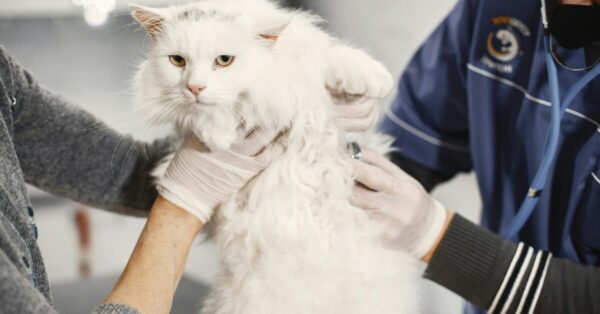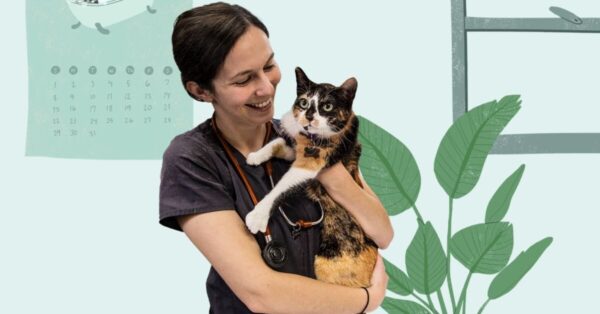Have You Wondered What vaccines do indoor cats need Yearly?
Religion that indoor cats cannot get diseases, which is why it makes no sense to vaccinate them.
Still, this is not entirely true. Even though indoor cats have limited access to the outside environment they are still prone to some sickness.
Now let’s look at which vaccines your indoor feline friend should have.
Reactions of an Indoor Cat to Vaccinations

They may not go outside the house, but your cat may still contract a disease.
For instance, the flu can be carried in through your shoes or clothes into your house. Also, other pets that you might have will spread diseases to your indoor cat.
Preventive immunizations are crucial in shielding people from such possible dangers.
Core Vaccines for Indoor Cats
Two core vaccines are generally recommended for all cats, regardless of whether they are indoor or outdoor
1. FVRCP: This is the FVR+CRS+Pv combo vaccine which immunizes cats against Feline Viral Rhinotracheitis, Calicivirus, and Panleukopenia.
These diseases can lead to severe illness and in some cases fatalities in cats.
2. Rabies: Domestic animals especially cats can also be affected and it becomes the responsibility of the owner to protect their pet from this deadly virus.
Rabies vaccination is legally required in some states or localities.
Vaccination Schedule
1. Kittens: In a nutshell, numerous vaccinations are administered to kittens at a point when they are usually 8-9 weeks old.
The schedule may be different according to the vaccine and your vet’s advice on the proper protocol.
2. Adult Cats: after receiving all the vaccinations the cat might receive as a kitten, it will be necessary to receive booster shots. The interval at which such boosters are given depends on the vaccine type and the recommendation of the veterinarian.
In stressed indoor cats, the FVRCP is usually administered at three-year intervals, while the rabies vaccine must be administered annually depending on the region’s laws.
Knowing about the Diseases that is covered under the Core Cat vaccines

Getting your indoor cat immunized is a measure that has to be taken when it comes to preventive care for your feline companion.
Now it is about time to turn to the concrete diseases that are guarded by the core vaccines.
1. FVRCP Vaccine
The FVRCP vaccine safeguards your cat from three potentially fatal diseases:
Feline Viral Rhinotracheitis (FVR): FVR also referred to as the ‘feline cold,’ is associated with upper respiratory infections manifested by sneezing, coughing, and fever. In severe circumstances, it can cause pneumonia, a disease that triggers inflammation in the lungs’ air sacs.
Calicivirus: It is a virus that is very easily transmitted, and results in oral and respiratory ulcers and, in some instances, ocular manifestations.
Panleukopenia: commonly referred to as feline distemper is a fatal disease that targets the immune system, the gastrointestinal system as well and the bone marrow.
2. Rabies Vaccine
Rabies is an acute viral disease that is characterized by damage to the central nervous system and nearly always leads to death.
Though the danger of rabies to indoor cats is considerably less, they must remain safe from this fatal virus.
Every cat owner would want their cat to be in the best health possible, and one way to make this a possibility is through taking your cat for a vet visit.
To minimize stress for both you and your cat, it’s helpful to prepare for vet visits: To minimize stress for both you and your cat, it’s helpful to
Prepare for vet visits:

1. Choose a quiet carrier: Ensure that the cat is comfortable with the carrier you choose.
2. Practice carrier time: You should spend a short time in the carrier with the cat so that you can get him/her used to it.
3. Offer comfort: It is suggested before the visit, to bring something like a blanket, favorite toy, etc to maintain the feel of home.
4. Provide clear information: You should be ready to provide such information about your cat as his/her health records and behavior and problems you may have.
With the lessons from this passage, one can promote the understanding of the aspect of vaccinations and other measures that ought to be taken in readiness for visits to the vets with a view of enhancing health.
Consulting Your Veterinarian

The vaccination schedule of your cat should be discussed with your veterinarian and agree upon the most appropriate vaccinations to give your feline.
They will factor age into the recommendations and also the life of your cat as well as the general health of your cat.
Conclusion
What Vaccines Do Indoor Cats Need Yearly? Indoor cats are not under the same threat as that faced by outdoor cats and thus even indoor cats need to be vaccinated.
So whenever you administer your cat the appropriate vaccinations this puts you in a proactive position of ensuring your cat’s health is well protected. Please always seek advice from your vet and develop a vaccination schedule for your pet cat.
If you would like more information on these vaccines and the specific diseases that they combat or the preparation of your cat for a vet trip, please speak with a vet.
Frequently Asked Questions.
Do Indoor Cats Need To Be Vaccinated Every Year?
Yes, indoor cats require annual vaccinations. However, some vaccines can be administered every three years, while others require annual injections.
What vaccines do indoor cats require?
Four core vaccines are required for indoor cats:
Rabies,
Feline herpesvirus,
Feline calicivirus,
Feline panleukopenia.
What vaccines should cats get yearly?
Two vaccines should be administered to cats: the rabies vaccine every year, and the FVRCP vaccine every three years. It is always advisable to consult your veterinarian before making any decisions regarding your cat.
Do Indoor Cats need flea and worming?
A flea and worm preventative medicine is essential for indoor cats, as fleas and worms can easily enter your home on clothes and other items, affecting the health of your indoor cat.
